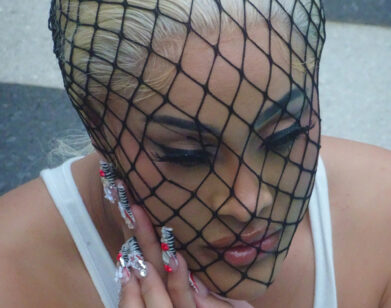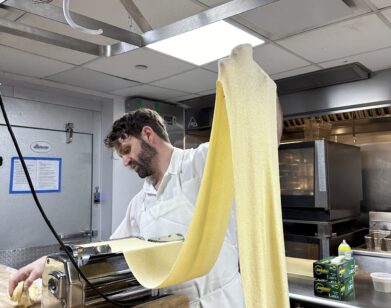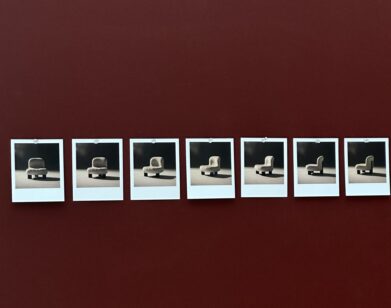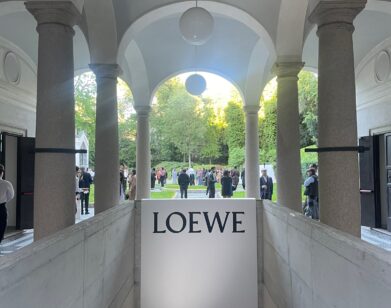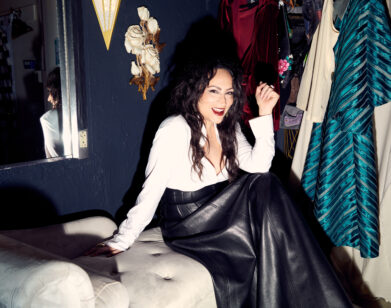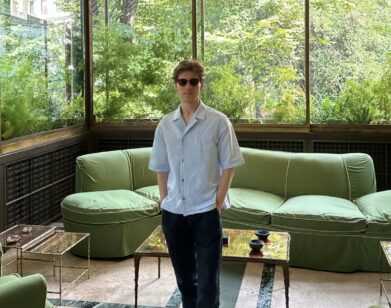Ten Minutes with Terrence Howard and Lee Daniels
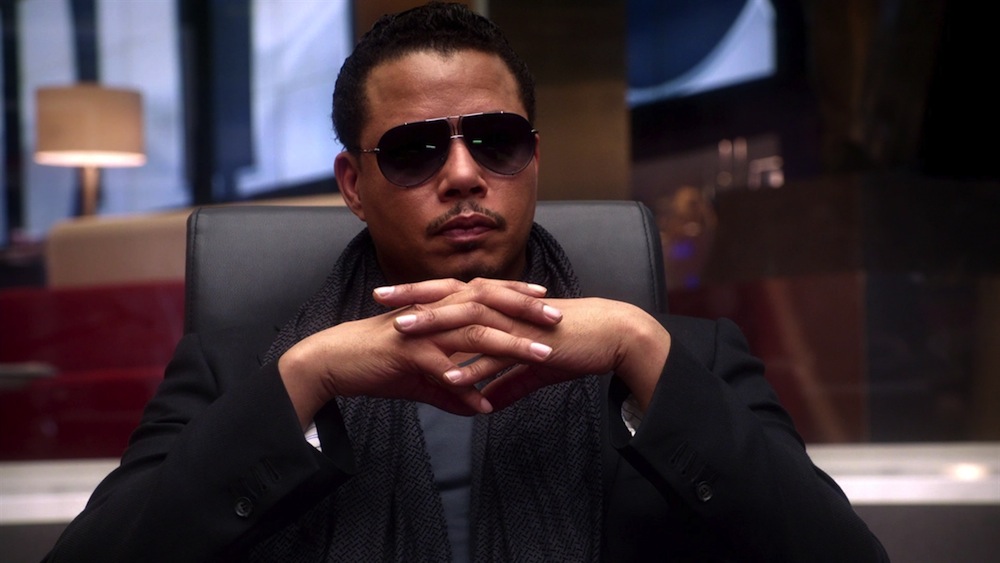
ABOVE: TERRENCE HOWARD AS LUCIOUS LYON IN EMPIRE
“I don’t know what’s more exciting,” said director Lee Daniels at SCAD’s third aTVFest in Atlanta, Georgia on Saturday. “Being able to tell my story, or being able to have African Americans like Debbie Allen, John Singleton, Mario Van Peebles, Rob Hardy, and the writing room telling the story.”
Daniels is referring to Empire, his new dynasty drama that launched on Fox last month. The show revolves around the Lyon family, hip-hop royalty. A former musician himself, Lucious Lyon (Oscar nominee and frequent Daniel’s collaborator Terrence Howard) now runs a successful record label. When he is diagnosed with ALS and given three years to live, Lucious pits his three sons against one another King Lear-style in battle to take over the “empire.” There is Andre (Trai Byers), Lucious’ eldest and most business-savvy child; Hakeem (Bryshere Y. Gray), the spoiled, youngest son who, at his father’s behest, is lackadaisically pursuing a rap career; and Jamal (Jussie Smollett), the middle, most musically talented child, whose sexuality has earned him years of verbal and physical abuse from his father. To complicate matters, Lucious’ diagnosis coincides with the release of his ex-wife, Cookie (Taraji P. Henderson), from 17 years in jail. Unlike Lucious, Cookie actively supports Jamal.
In a lineup that included The Mindy Project, How to Get Away with Murder, The Following, and Girls, Empire was perhaps aTVFest’s most anticipated screening, and Howard was awarded the Festival’s Spotlight Award later that evening.
EMMA BROWN: Jamal recently stood up to his father for the first time. Would Jamal have stood up to Lucious without Cookie being back in his life?
TERRENCE HOWARD: Yes, ’cause Jamal is a monster inside. It’s not Cookie that brought him out. His musical abilities and talents are just one expression of the greatness that’s in him. That monster, that audacity of truly being is in there. Lucious has never tried to crush that; Lucious always pushed it. I think Jamal always had that in him, but the little prying from Cookie burst it all the way through. That’s my view.
LEE DANIELS: That’s the way that it was written, but in real life, I don’t think so. I look at Jamal as me, and I still fear—even though he’s dead—my father.
HOWARD: But you didn’t need a Cookie in your life to create and accomplish and master the world the way you’ve mastered it. I think it was innate within Jamal to accomplish that—he was destined. Manifest destiny.
DANIELS: You may have a point. When you’re told that you aren’t and you won’t be anything because you are gay, then where else is there to go but to reach for the sky? I think you just hit on something very interesting Terrence, that is where the beast is coming from. I think there is that beast in me. Otherwise, how would I be here right now?
HOWARD: Yeah. It was always there. The sun giving birth to planets, they had no choice but to burst forth from the equator of the sun and to grow and grow and grow and reach this perfect zone right here where we’ve got life on it. Soon it will fade out, and then Venus will take it’s place, and there will be another young artist that seems repressed and with all this craziness happening in his world, it will give birth to life on this planet. It’s just the natural progression of creative beings. The harder I’ve pushed at him, the harder life has pushed at him, it’s compressed him. A diamond is only a piece of coal that did well under pressure.
BROWN: In the flashbacks, we glimpse some of the abuse Jamal suffered at the hands of his father when he was a child. Will Jamal ever be able to truly forgive his father?
HOWARD: I don’t think he has to forgive him because Lucious has never asked him.
DANIELS: You’re so funny Terrence. I can’t deal with you. It’s too much.
HOWARD: Every father—whether you’re white, black, Spanish, Indian, whatever—every father has said, “I brought you into this world; I’ll take you out of it.”
DANIELS: No, that’s just a black thing.
HOWARD: “I brought you into this world, I’ll take you out of this world.” The environment that they grew up in, if Lucious hadn’t been that way with him, Jamal may not have survived it. Jamal learned what the devil looked like.
DANIELS: You’re correct. He’s absolutely correct.
BROWN: You don’t think he could have learned from having a safe haven at home?
DANIELS AND HOWARD: No!
HOWARD: You don’t grow from “safe haven.” You got here from beating out a half billion of your own brothers and sisters to get to life.
DANIELS: I wrote Hakeem’s character based on my son—I have a 19-year-old son. At 19, I was in the streets making money. I was surviving. My son wouldn’t know how to work right now, because I wanted him to have everything that I didn’t have. Now I’m concerned about him: “How’s he going to live? What’s going to happen?” I think this is the concern of, not just African Americans, but Americans. We want our kids to have everything that we didn’t have, and now what?
HOWARD: It prevents them from having everything that they could possibly achieve for themselves.
DANIELS: So what happens is that all of a sudden you shift gears. You go, “Oh, no. Let me show you how to man up” at the last minute. Well, it’s too late! I can’t snatch the rug from under you if you’ve been protected for these 19 years. It’s an interesting irony.
SEASON ONE OF EMPIRE AIRS WEDNESDAYS ON FOX.

